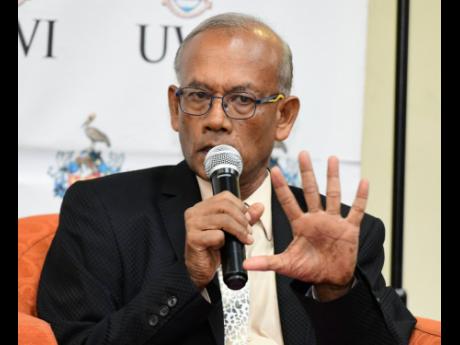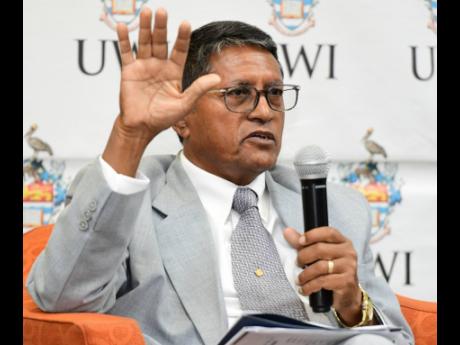Fertility crisis
Jamaica facing economic threat due to falling replacement-population level
Jamaica is now in the throes of a “crisis”, with its total fertility rate falling below replacement-population level, a matter that has grave implications for the country’s economy, experts in the policy, medical, and academic fields are warning.
Jamaica, with a population of roughly three million, for the first time in December 2023 recorded a fertility rate of 1.9, falling below the internationally accepted 2.1 fertility rate required for maintaining the population at replacement level.
This has triggered concerns for its strategic and development outlook as the country hastens to determine the resources and policies required to maintain a sustainable population.
It is believed that because of chronic migration, a fertility-replacement rate of 2.3 is necessary for developing countries, noted Dr John Harriott, director of the Hugh Wynter Institute for Reproductive Healthcare and Endoscopic Surgery.
This comes against the backdrop of Jamaica being among 22 of the 26 countries in the Caribbean region that are below the replacement level.
This is a turning point for these countries, concluded Easton Williams, senior director, social policy, planning, and research at the Planning Institute of Jamaica (PIOJ). Williams and Harriott were participating in a roundtable talk on ‘Sustainable replacement population: protecting your fertility’.
The discussion, moderated by journalist and attorney-at-law Dionne Jackson Miller, took place at The University of the West Indies Regional Headquarters in Mona, St Andrew.
‘A problem now’
Williams said short-, medium-, and long-term views are required for the current problem even as Jamaica still maintains an expansive population of working age.
“We have a problem. We don’t have a problem in 20 years, 10 years, or 30 years. We have a problem now,” cautioned Reginald Budhan, a former permanent secretary in the Ministry of Industry, Investment and Commerce.
Budhan said Jamaica recorded 52,000 live births in 2023, and at the same time, 21,000 migrations. There were approximately 20,000 deaths.
Budhan noted that this should be of concern to the country because it is the most valuable part of Jamaica’s GDP who leaves to supply labour for mostly developed countries with significantly low birth rates.
He said for Jamaica to be sustainable and viable and to maintain or achieve a high level of per capita income and standard of living, a high birth rate must be maintained. He argued that this would compensate for the constant migration.
The former permanent secretary said failing to do this means that Jamaica would never have quality human resources, citing that 80 per cent of Jamaicans who migrate are its most educated.
“That tells you a lot. What remains will never be able to achieve Vision 2030. It would be a dream, and we will move from 2040 to 2050. We have a serious problem,” Budhan insisted.
Added to that, panellists determined that several other factors have contributed to the low fertility rate, arguing that serious interventions are required.
Some of the challenges identified surrounded a lack of public education on the issue of fertility, which experts believe should begin in schools, ensuring that boys are not neglected when discussing reproductive health.
A lack of accessible care in health regions across the country was also noted as well as the need to reduce the cost for infertility treatments amid the lack of funding via insurance companies.
The need for better working, employment, and childcare policies also formed part of the discussion as well as the prevention of infertility sometimes due to non-communicable diseases, sexually transmitted infections, and other social activities such as alcohol consumption and smoking.
Williams suggested that addressing the majority of the issues identified would amount to merely short-term interventions.
He said no country that has fallen below replacement-fertility level has managed to reverse this and increase its level back to replacement level.
The PIOJ’s senior director said countries falling below the replacement-fertility level usually continue on a downward trajectory, pointing to South Korea as an example.
He said the rate in the Asian country is below one (0.68).
“So not even the woman is replacing herself in the next reproductive cycle there,” said Williams.
He said for Jamaica to stabilise its population over the long term, policy intervention is required now to reduce infertility.
Additionally, he said the Government must look at immigration as a policy option to stabilise the country’s population.
“Those are the broader issues we need to take forward. In fact, the Planning Institute has been taking those initiatives in terms of the population policies they are developing and implementing,” he said.




